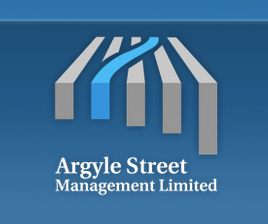
SINGAPORE (June 30): After months of rancor and debt wrangles, the Sinarmas takeover of Asia Resource Minerals Plc could get through this week. For the hedge fund that helped steer the deal, it’s a chance to salvage a soured investment.
While Argyle Street Management’s 4.7% stake in ARMS is worth a sliver of its purchase cost more than two years ago, a far more lucrative prize awaits. Its role in managing the Sinarmas bid takes the US$850 million ($1.1 billion) Hong Kong fund further into the fold of Indonesia’s Widjaja family and offers a slice of what could be the nation’s fourth-biggest coal producer.
The Argyle-Widjaja alliance caps a series of deals with Southeast Asia tycoons as the 13 year-old fund cements its presence in the region. The Widjajas plan to merge ARMS’s troubled PT Berau Coal Energy with their own coal venture that Argyle is also invested in. But first they must restructure Berau’s distressed debt to avoid adding to US$2.3 billion of dollar-bond defaults by Indonesian borrowers since 2008.
“We believe in the Sinarmas group’s ability to execute its business plan for Berau,” Kin Chan, the 49-year-old co-founder of Argyle, said in a June 26 e-mail. “The Widjaja family is committed to the business. We’ll retain our equity position in ARMS for the long term.”
Sinarmas didn’t reply to a request for comment through its external public relations adviser. The group is bidding for ARMS via its Asia Coal Energy Ventures vehicle.
Rothschild’s Relent
UK banking scion Nathaniel Rothschild earlier this month abandoned plans for his own ARMS bid after a string of public spats with former shareholders including Indonesia’s Bakrie family, and is selling his 17.2% stake. Investors have until Wednesday to accept Sinarmas’s offer, which the target’s board has recommended. ARMS is listed on the London stock exchange and owns 85% of Berau.
In a crucial parallel vote, investors at ARMS’s general meeting in London on Monday approved Sinarmas’s acquisition of loans from Vienna-based Raiffeisen Bank International AG. The lender seized control of former ARMS chairman Samin Tan’s 23.8% stake in October last year by enforcing on the debt he used to acquire it.
At the heart of the ARMS bid is Berau’s 118,400 hectare mining concession in Kalimantan, the Indonesian part of the island of Borneo. The coal-rich area almost half the size of the state of Rhode Island is a prized asset.
“Argyle is investing during a downturn in the coal cycle, and could potentially profit if coal prices recover,” said Sandra Chow, a high-yield bond analyst in Singapore at CreditSights Inc. There may be “some benefit from their partnership with Sinarmas too,” she said.
Super Rich
For Chan, the ARMS takeover is another handshake with Indonesia’s super rich. Argyle and the nation’s Riady family are co-investors in property giant OUE, whose assets include offices and hotels in Shanghai, Los Angeles and Singapore, where it’s listed. In April, Argyle invested in Tengri Resources, a London-listed miner controlled by billionaire Anthoni Salim.
Such ties are handy for navigating Southeast Asia’s biggest economy, where local companies have racked up the region’s most dollar bond defaults. In the past year, a slowdown in China has sparked a slump in commodity prices from iron ore to copper, with coal prices dropping more than 50% from their peak in January 2011. Indonesia, the world’s biggest thermal coal exporter, expanded at the slowest pace since 2009 last year.
Berau’s dollar bonds aren’t faring much better. Its 2015 notes have tumbled over the last year, trading at 62.9 cents in the dollar in Hong Kong on Monday, while the 2017s languished at 59.1 cents. Still, both have risen from record lows in January as restructuring plans were tabled.
“The share and bond prices have suffered along with the clashes between the former shareholders,” Reza Priyambada, an analyst at PT NH Korindo Securities in Jakarta, said in an interview on Monday. “It’s still a big gamble as well as a bold step for Sinarmas and other investors because nobody is predicting a coal industry recovery in the next 12 months.”